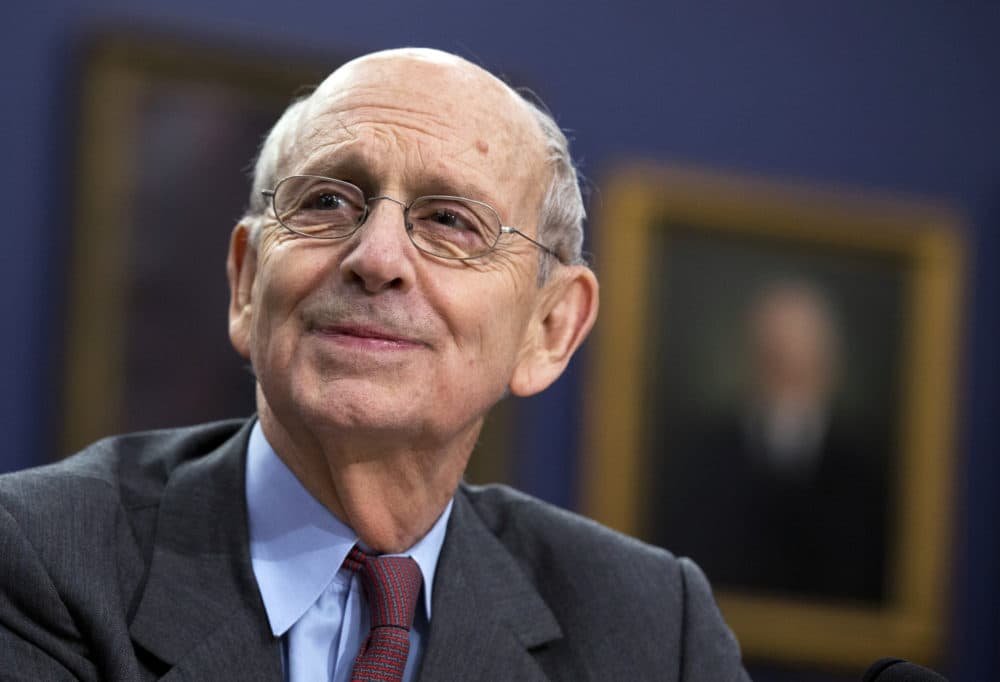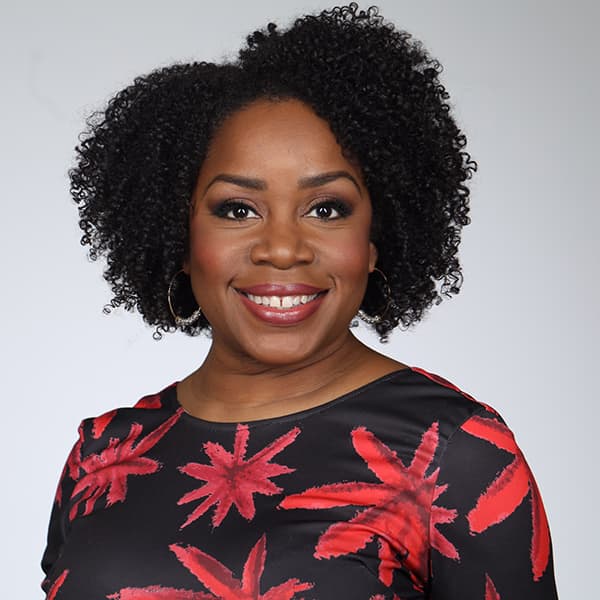Advertisement
Justice Stephen Breyer, his replacement and the future of the Supreme Court

After 27 years on the Supreme Court, Justice Stephen Breyer is retiring.
“The Republicans have played a long game in naming quite young people to the court, and this vacancy now gives the Democrats a chance to play a tiny bit of the same long game," Yale Law's Linda Greenhouse says.
Democrats see an opportunity to make sure that Breyer’s seat on the bench is occupied by a jurist who shares their values.
But they may be disappointed by how much influence Breyer’s replacement will have.
“What we’re seeing now is the court injecting itself in these culture war issues where the court is taking for itself the ability to have the last word," Linda Greenhouse says. "And I think there’s going to be a lot of discomfort in the country as these issues play out.”
Today, On Point: Justice Breyer, his replacement and what that decision will mean for the Supreme Court.
Guests
Jill Dash, vice president for strategic engagement at the American Constitution Society. (@jilldash)
David Savage, Supreme Court reporter for the Los Angeles Times since 1986. (@DavidGSavage)
Also Featured
Linda Greenhouse, clinical lecturer in law and a senior research scholar in law at Yale Law School. Author of Justice on the Brink.
Interview Highlights
On Stephen Breyer’s Supreme Court legacy
David Savage: “Justice Breyer, he seems like a figure from a different time. In 1994, he was coming on a court. Bill Clinton ... picked Ruth Ginsburg the year before, then Stephen Breyer. And the idea ... was a conservative leaning court. But there were several moderates. Sandra O'Connor, Anthony Kennedy. And Justice Breyer had the view then, had it in his entire career, that he could work with the moderate justices to sort of find middle ground or common sense, sort of middle positions. The court was not frozen, and the idea that Justice Breyer was a very optimistic guy, he always thinks if we can sit down and talk together, we can work out some reasonable deal, some practical deal.
“And that's the way he was on the court for 27 years, always trying where he could to try to find some middle ground. ... The new justice, she will be coming on a court where there's a 6-3 conservative majority. And there really isn't any moderate in the middle who could work with a liberal justice. So I'm struck by that. The Breyer approach to the court sort of made a certain amount of sense in the 1990s and beyond. And he had a record of a fair number of issues where particularly when Sandra O'Connor was there, being able to work together and work the middle. But those days, I think, are gone. This is a different court. Six people with very strong views on the law, very conservative views on the law, and they're not likely to be swayed by a new Biden liberal justice coming onto this court.”
On Justice Breyer’s legal approach on the court
David Savage: “He was always an interesting person in the court because, as you say, he was sort of like a law professor and he would ask questions that were not sort of pointed 'Yes, no' questions. They would basically say, Well, here's what I'm thinking about. And then he would talk a little bit about how he viewed the case, or how they view the issue. And say, Look, we could do this or we could do that. But what's the argument for? Why should we move this way? Or why should we move that way?
"He was sort of thinking aloud and getting the lawyers to talk, and it's appealing for a certain number of cases where they're trying to work out some reasonable position on the law. And I think he was very good at that. And it was difficult for some of the lawyers who really prefer to sort of 'Yes, no' question. But I always found him an interesting, engaging and optimistic person. Always, like I say, trying to find the right answer for this difficult question. And that will be missed."
On the next possible Supreme Court pick
Jill Dash: “It will be historic. It was historic even when the president made that pledge, and he didn't just make that pledge out of thin air. It was a recognition that the Supreme Court has lacked representation of the American people, and in particular has never had a Black woman. This next justice would be only the sixth woman ever to serve on the Supreme Court in a nearly 250 year history. For the people who are calling this identity politics, it's because they're used to identifying white men on the Supreme Court. 108 of them. That's what the Supreme Court looks like to a whole lot of people.
"But to many Americans, the Supreme Court looks nothing like them, but then rules on issues that affects their lives day in and day out. And so I think the president was recognizing that the Supreme Court should look like America, or at least a little bit more like America. And is vowing to do something about that. I will also say this White House didn't just make that pledge, and leave it there. They've steadily built up the farm team over the last year in their lower court nominations, bringing many more diverse nominees to the federal courts. And so it's really been a commitment from this White House.”
On what lies ahead for the court
Jill Dash: “This is a court that has become completely unafraid to weigh into the thorniest social issues of the day. Even when, as with abortion, precedent is fairly firmly established. And so it is increasingly what we normally call a pretty activist court. Conservatives like to talk about judicial restraint, but we're certainly not seeing that from this Supreme Court. And so this new justice no doubt will be thrown into the middle of that. And then, as we mentioned, will have to decide, Are you a dissenter who talks about what this all looks like from your new perch on the Supreme Court bench? Is there a way that you try to stem the tide of this very conservative lurch to the right?
"Time will tell. You know, it's very interesting that during the most recent oral arguments on abortion at the Supreme Court, Justice Sonia Sotomayor just almost somewhat casually started talking about the stench that this set of cases will leave on the court, because people see it becoming so political. And immediately that terminology got picked up and carried forward. And now it's become common parlance to talk about the stench of this rightward lurch of the Supreme Court. And so that's what the new justice will find herself in the middle of.”
We saw Justice Breyer spending a great deal of time over the last year, really trying to make the case to the American people that they need to believe in the court, that they need to believe that it is not just a partisan body. Do you think that's possible?
Jill Dash: “I think it's really tough. I appreciate Justice Breyer's optimism, but this really is a court that is significantly far to the right of the American people, and is not showing a respect for precedent. They're revisiting all kinds of issues that we thought were settled, and not necessarily to the betterment of the average American. In many ways, I think they've earned that reputation that is sliding downward. And I don't know what one new justice who is going to be in the more likely progressive minority is going to do about that.
"I will say I hope that this renewed focus on the Supreme Court has folks thinking about where it's headed, and what we're going to do about it. I don't think anybody particularly enjoys this sense that people are losing respect for the Supreme Court. And the question is what is there to do about that? You're not going to immediately overnight change the minds of the six more conservative justices. Is there something that should be done to change the structure of the Supreme Court? Should we be adding seats to address the fact that Merrick Garland never got a hearing, and that seat was basically stolen from the Obama administration?
"Or the fact that Amy Coney Barrett's confirmation was jammed in at a time when people were already voting. Those things were discussed at length and feel almost trite at this point, but it still does amount in two seats that were essentially stolen from more progressive picks. So what do we do about that, or how do we think about the court going forward? How do we get them to reform their thoughts? I don't see one justice changing that dynamic, but I do hope it lifts up the conversation around what the Supreme Court ought to look like and how they ought to operate.”
From The Reading List
Los Angeles Times: "Supreme Court Justice Stephen G. Breyer to retire, giving Biden his first appointment" — "Justice Stephen G. Breyer, the Supreme Court’s 83-year-old liberal pragmatist, plans to retire this year, clearing the way for President Biden to make his first appointment to the high court."
This program aired on January 28, 2022.

